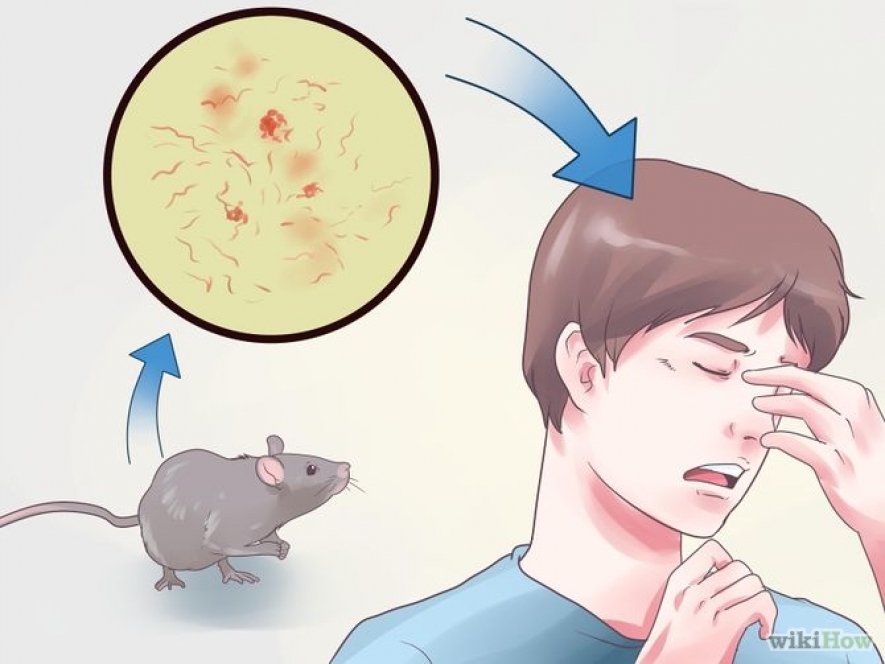
Rat fever, also known as leptospirosis, is a bacterial infection caused by contact with water or soil contaminated with the urine of infected animals, particularly rats. While rat fever can range from mild to severe, understanding its risks, preventive measures, and home care tips is crucial for staying safe.
What is Rat Fever ?
Rat fever, or leptospirosis, is a potentially dangerous bacterial infection caused by Leptospira bacteria. These bacteria thrive in water or soil contaminated with the urine of infected animals, including rodents such as rats. Humans can become infected through direct contact with contaminated water or soil, as well as through cuts or abrasions on the skin.
Risks and Dangers of Rat Fever
Rat fever can range from mild flu-like symptoms to severe complications, including kidney and liver failure, meningitis, and even death in rare cases. Individuals at higher risk include those who work outdoors or in environments with a high risk of exposure to contaminated water or soil, such as farmers, sewage workers, and individuals participating in water-related activities.
How to Control .
Preventing rat fever involves taking proactive measures to minimize exposure to contaminated environments and practicing good hygiene . Here are some effective strategies for controlling rat fever :
1. Avoid Contact with Contaminated Water
- Avoid Swimming or Wading in Potentially Contaminated Water: This includes stagnant water, flooded areas, and water bodies frequented by rodents.
- Use Protective Gear: Wear waterproof boots and gloves when working in areas where contamination is likely.
2. Practice Good Hygiene
- Wash Hands Frequently: Use soap and water to wash hands thoroughly, especially after handling soil or potentially contaminated items.
- Keep Wounds Covered: Cover cuts, scrapes, or abrasions with waterproof bandages to prevent bacteria from entering the body.
3. Control Rodent Populations
- Eliminate Rodent Habitats: Keep outdoor areas clean and free of clutter where rodents can nest.
- Use Rodent Control Measures: Implement traps, baits, or professional pest control services to reduce rodent populations.
4. Vaccination
- Consider Vaccination: In areas with a high prevalence of rat fever, vaccination may be recommended for individuals at increased risk of exposure.
Home Care Tips for this Fever
If you suspect you have been exposed to contaminated water or soil and develop symptoms of rat fever, it is essential to seek medical attention promptly. In the meantime, here are some home care tips to manage symptoms and support recovery :
- Stay Hydrated: Drink plenty of fluids, such as water, electrolyte solutions, or herbal teas, to prevent dehydration.
- Rest and Recover: Get plenty of rest to allow your body to fight off the infection and promote healing.
- Manage Fever: Use over-the-counter fever reducers, such as acetaminophen, to reduce fever and alleviate discomfort.
- Follow Medical Advice: Take any prescribed medications as directed by your healthcare provider and attend follow-up appointments as recommended.
Girija Health Care: Your Partner in Health
At Girija Health Care, we offer a range of surgical products designed to support your health and well-being. From wound care supplies to hygiene products, we provide the tools you need to stay healthy and safe.
Click here To get in touch
leptospirosis, is a potentially dangerous bacterial infection transmitted through contact with contaminated water or soil. By following preventive measures and practicing good hygiene, you can reduce your risk of infection. If you suspect you have been exposed to rat fever or develop symptoms, seek medical attention promptly and follow home care tips to support recovery. Contact Girija Health Care for high-quality surgical products and support for your health and wellness needs.For more information about our products and how we can help you prevent rat fever, contact Girija Health Care in Udupi and Mangalore at +91 9740931185.
Want to learn about neck Pain click this
This content is provided for general informational and educational purposes only. Girija Healthcare and Surgicals does not make any claims regarding the information presented. We strongly recommend consulting with doctors and other healthcare professionals before considering any of the suggestions provided here.

